MercoPress. South Atlantic News Agency
Politics
-
Thursday, May 14th 2009 - 03:33 UTC
Chilean president invited to the White House June 23
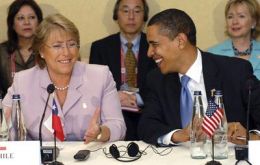
Chilean president Michelle Bachelet will be meeting with President Barak Obama at the White House next June 23, it was announced in Santiago. This will be the second meeting of the two leaders: the first was at the recent Summit of the Americas in Trinidad Tobago.
-
Wednesday, May 13th 2009 - 15:58 UTC
Continental shelf claim: Falklands replies to Argentina’s vehement reaction
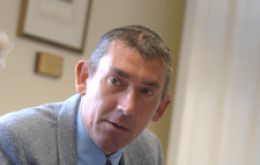
The Falkland Islands Government Director of Mineral Resources today responded calmly to the Argentine Foreign Affairs vehement reaction to the UK submission in respect of its extended continental shelf claim around the Falkland Islands.
-
Wednesday, May 13th 2009 - 15:39 UTC
Another Clinton hand joins Obama’s team as head of hemispheric affairs

US President Barack Obama named Tuesday Arturo Valenzuela, a US-Chilean citizen and former member of President Bill Clinton’s administration as the new head of hemispheric affairs in the State Department reported the White House press office.
-
Wednesday, May 13th 2009 - 15:36 UTC
Restored iconic RAF Vulcan bomber set to soar at Air Tattoo show

One of the stars of this summer’s Royal International Air Tattoo in the Cotswolds, England has been unveiled by organisers. Visitors to RAF Fairford on July 18-19 will have a rare opportunity to see a display by one of the most iconic war-birds of the Cold War era.
-
Wednesday, May 13th 2009 - 01:50 UTC
Senior Tory MPs agree to repay “excessive” expenses

Britain’s opposition leader David Cameron says he will lead senior Conservatives in repaying “excessive” expenses - warning that he will boot any MPs who refuse out of the party.
-
Wednesday, May 13th 2009 - 01:48 UTC
Record unemployment in UK, totals 2.2 million

United Kingdom’s unemployment has jumped by almost a quarter of a million to take the total to 2.2 million, official figures have revealed. Data showed a quarterly rise of 244,000 - the biggest increase in the number of people looking for a job since 1981.
-
Wednesday, May 13th 2009 - 01:39 UTC
Washington expresses full support for Paraguayan president Lugo
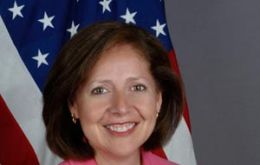
United States explicitly expressed support for Paraguayan president Fernando Lugo and his administration in response to some “instability” rumours which are “not positive” for the country.
-
Tuesday, May 12th 2009 - 09:51 UTC
Immediate Argentine reaction to UK’s Falklands’ sea shelf submission
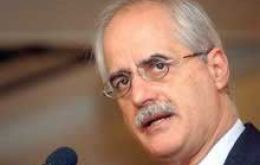
The Argentine government expressed on Monday its most vigorous rejection to “the United Kingdom’s pretension to establish maritime spaces round the Malvinas, South Georgia and South Sandwich islands, which are part of Argentine national territory”.
-
Tuesday, May 12th 2009 - 05:36 UTC
Venezuelan president warns media about “hate messages”
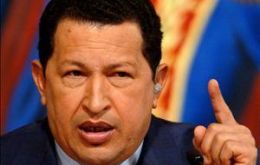
Venezuelan president Hugo Chavez warned he will take strong action against all media involved in the spread of “hate messages, trampling with the truth or promoting war”.
-
Tuesday, May 12th 2009 - 05:30 UTC
Chavez takes over farms and denies the right to “private land”

Venezuelan President Hugo Chavez ordered Sunday the expropriation of more than 10.000 hectares (24.710 acres) of arable lands belonging to six farms and mixed farming industries in the state of Barinas, south-western Venezuela arguing that farms “are not weekend resorts for the rich
